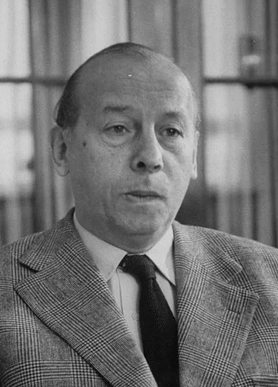Hans Boden
( industrialist) | |
|---|---|
 | |
| Born | 28 July 1893 Braunschweig, Germany |
| Died | 17 November 1970 (Age 77) Frankfurt, Germany |
| Nationality | German |
| Alma mater | University of Würzburg |
| Member of | Rhodes Scholar/1911 |
Rhodes Scholarship German industrialist in Germany before, during and after WW2 | |
Dr Hans Constantin Boden was a German business manager, both during the National Socialist era and in the Federal Republic of Germany.
Background
The son of the Braunschweig minister Robert Boden and Maria Uhde, daughter of the architect Constantin Uhde, he studied law and economics in Würzburg, where he received his doctorate in law. and completed the traineeship with the assessor exam. As a Rhodes Fellow at Oxford, he received a Diploma in Economics and Political Science.
Career
He began his public service activities in the Reich Ministry for Reconstruction and in the Reich Ministry of Finance. Between 1925 and 1929 he was a member of the German War Burdens Commission in Paris and in 1929 he was involved in the negotiations on the Young plan. In the same year he went to AEG and became chief financial officer, succeeding Paul Mamroth. During World War II he was appointed Military Economics Leader (Wehrwirtschaftsführer). He allegedly gave the instruction that no forced laborers from the concentration camps should be employed at AEG, which, however, was not followed.[1]
After the war he described himself as an anti-Nazi, since he said he was forced out of office at AEG by the National Socialists in the spring of 1944. He then starting working at the Foreign Office from May 8, 1944 until the end of the war, and was appointed to work for Plenipotentiary of the Greater German Reich in Hungary Edmund Veesenmayer. The Hungarian economy, since Hungary now was puppeted, should be brought under the leadership of the German embassy. Since April 1944, the Eichmann command, with the support of the Hungarian authorities and the German embassy, was already in the process of deporting 400,000 Hungarian Jews. After the German-backed coup d'état by the Arrow Cross Movement in October 1944, the Budapest Jews were to be deported to Germany for forced labor. Due to the war, however, this was only carried out to a limited extent. Boden's position on these issues, which were negotiated in the embassy rooms, is not known.
After the war
After the end of the war he was exonerated as part of the denazification (category V).
Boden, who had been a member of the supervisory boards of AEG, Telefunken, Esso, Deutsche Werft AG, Mannesmann and other companies since 1929, initially became head of the finance department and deputy chairman of the board of AEG after the end of the war, from March 1956 to September 1962 its chairman and from 1961 to 1970 Chairman of the Supervisory Board, each with a short break. As a result, he also had a seat on the supervisory boards at the Olympia works in Wilhelmshaven, at Elektrofinanz-AG in Berlin, at the Papierfabrik GmbH in Osnabrück, at Rosenthal insulators, Selb, at Telefunken GmbH in Berlin, at Dresdner Bank and at Lloyd Dynamowerke in Bremen. In May 1960, during the negotiations on compensation for forced laborers, Boden succeeded in preventing all future claims by paying the Jewish Claims Conference for 4 million DM.
In 1950 he was part of the negotiating delegation for the Schuman Plan and from 1961 to 1963 he was President of the International Chamber of Commerce in Paris. Other offices were the deputy chairmanship of the Stifterverband für die Deutsche Wissenschaft and the memberships in the German Atomic Energy Commission at the Federal Minister for Atomic Affairs and in the Foreign Trade Advisory Board at the Federal Minister for Economics.
Event Participated in
| Event | Start | End | Location(s) | Description |
|---|---|---|---|---|
| Bilderberg/1958 | 13 September 1958 | 15 September 1958 | Buxton UK | The 7th Bilderberg and the first one in the UK. 72 guests |
References
- ↑ Benjamin B. Ferencz: Less than slaves, Cambridge, Mass. [u. a.]: Harvard Univ. Press, 1979, S. 114.